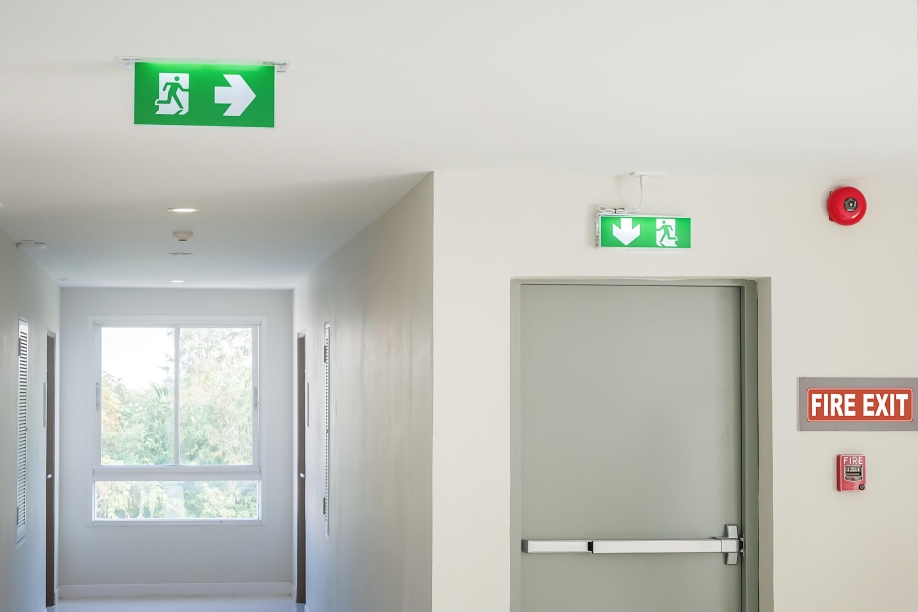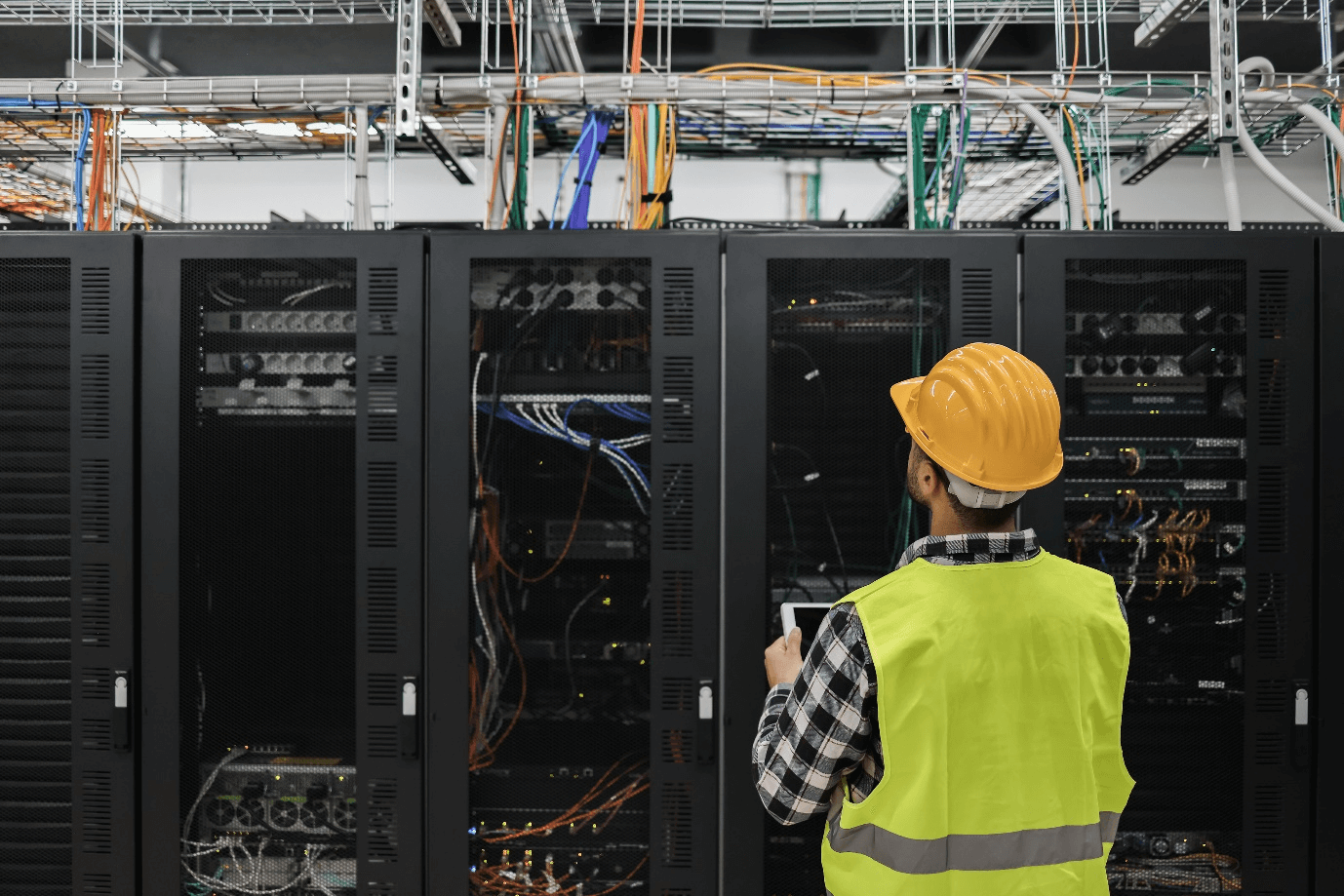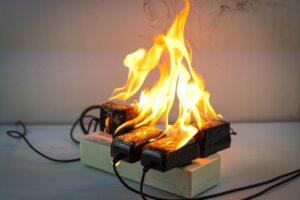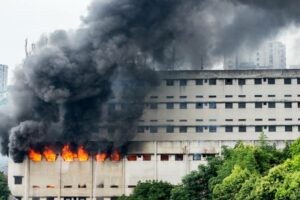A solid fire suppression system for your server room is key to safeguarding your company’s business technology.
In today’s fast-paced and technologically driven business environment, the server room is often the heart of a company’s operations. It is where critical data and business-critical applications are stored and managed.
As a result, protecting the server room and its equipment from potential fire hazards is a top priority for companies.
Continue reading to learn about fire suppression systems and why it is a necessary component in protecting a business’s server room.
Understanding Fire Suppression Systems
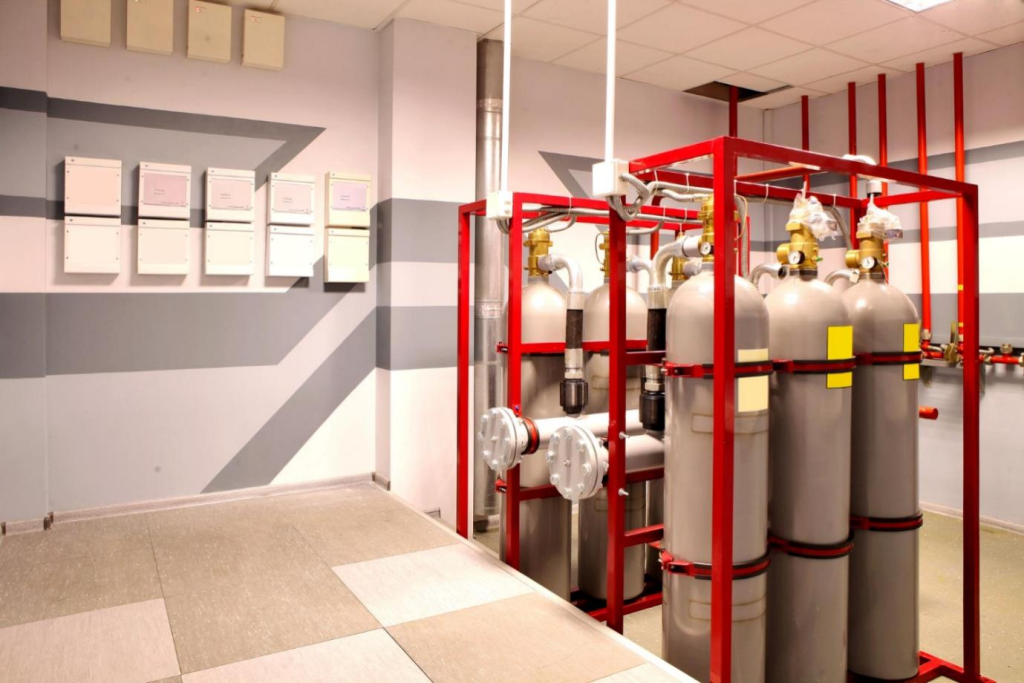
A fire suppression system is a set of components designed to detect and extinguish fires quickly and effectively. It is commonly installed in areas of a building where a sprinkler system may not be as effective as a fire protection system.
It is recommended for these systems to be installed in high-risk environments such as server rooms, data centres, and other critical infrastructure facilities to prevent fires from spreading and causing damage to valuable equipment and data.
The 4 Common Types of Fire Suppression Systems

From traditional water-based systems to advanced gaseous systems, there are various kinds of fire suppression systems available, each with its unique features and benefits.
Therefore, it is important for you to understand how they differ to make an informed decision and keep your server room safe.
1. Clean Agent Systems
Clean agent systems are fire extinguishing agents that do not conduct electricity and use gaseous agents to suppress fires without causing damage to the protected area or its contents.
The three most common clean agent fire suppression systems are:
| Clean Agent | Chemicals |
| Ansul Inergen | Ansul Inergen uses a combination of nitrogen, argon, and carbon dioxide gases to extinguish fires. The system is non-toxic, non-corrosive, and safe for use in occupied spaces. |
| FM-200 | FM-200 uses a chemical called heptafluoropropane (HFC-227ea) as the extinguishing agent. When discharged, the gas chemically interferes with the combustion process, thus preventing the fire from spreading. When compared to other clean agents like 3M Novec 1230, FM-200 is a more affordable option. This is because only a small quantity of FM-200 is required to suppress a fire, which means that fewer or smaller cylinders are needed. The FM-200 is also ideal to apply as a fire suppression system for server rooms, data centres, museums, and hospitals. It does not leave behind any residue or cause any damage to the surrounding area. |
| 3M Novec 1230 | 3M Novec 1230 releases a colourless, odourless, and electrically non-conductive liquid that vaporises quickly when discharged as a gas. It reduces the oxygen concentration in the protected space, thereby extinguishing the fire. It also works to absorb heat, further aiding in fire suppression. |
2. Inert Gas-Based Systems
Inert gas-based systems use a mixture of non-reactive gases, such as nitrogen, CO2, and argon, to extinguish fires. These gases reduce the concentration of oxygen in the environment, thereby reducing the amount of fuel available for combustion. It is often used in areas with limited accessibility or where human safety is a concern.
3. CO2 Systems
A CO2 sprinkler system creates a dense layer of gas that covers the fire, preventing it from spreading and ultimately extinguishing it. It is often used in environments where water or other traditional fire protection methods may be ineffective or unsafe, such as in areas with sensitive electronic equipment.
4. Mist-Based Systems
Mist-based fire suppression systems use a fine water mist to suppress fires. The mist is created by breaking down the water into small droplets using high-pressure nozzles, which increases the surface area of the water, thus making it more effective at absorbing heat.
Key Factors to Consider for Your Organisation’s Fire Suppression System
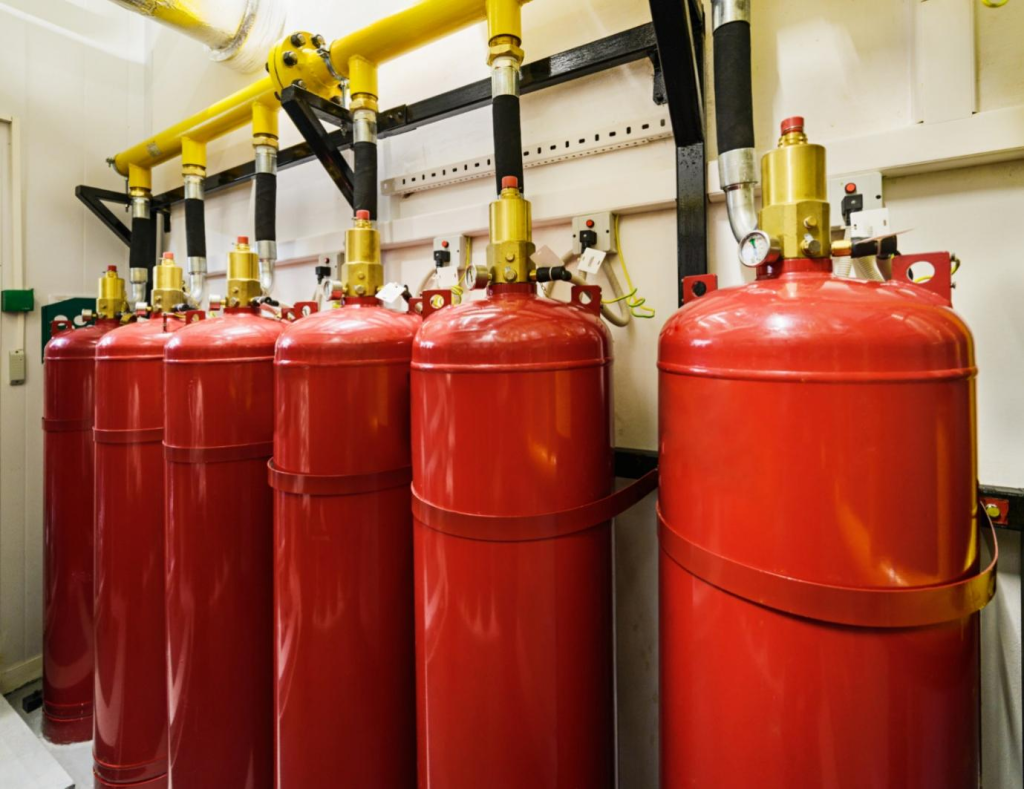
When selecting a fire suppression system for your organisation, there are several key factors to consider, including:
1. Cost
Cost is an important consideration when selecting a fire suppression system. They are available at different prices and have varying maintenance and installation costs as well.
2. Environmental Friendliness
Selecting an environmentally friendly fire suppression system for your server room helps protect the environment and demonstrates your organisation’s commitment to sustainability.
Clean agent systems such as 3M Novec 1230 or FM-200 are environmentally friendly as they have a low global warming potential (GWP) and ozone depletion potential (ODP).
In contrast, halon or carbon dioxide systems are not environmentally friendly as they have a high GWP and ODP and can harm human health if not used properly.
3. The Facility’s Design
Different buildings have different layouts, structures, and purposes, which may require different types of fire suppression systems.
For instance, a data centre requires a clean agent system, but a manufacturing facility requires a foam system. Both, however, will protect the facility’s sensitive equipment from fire.
4. Clean-Up & Restoration Efforts
When selecting a fire suppression system, it is important to consider the potential damage that may be caused and the clean-up and restoration process once the fire is put out.
Water sprinklers may cause significant water or chemical damage to your property or assets, which can be costly to repair and may result in significant downtime for your business operations.
On the other hand, clean agent systems do not leave any residue behind, making clean-up and restoration efforts much easier and less costly.
Choosing The Right Fire Suppression System for Server Rooms
Irreplaceable Asset Applications: Protecting Critical Assets
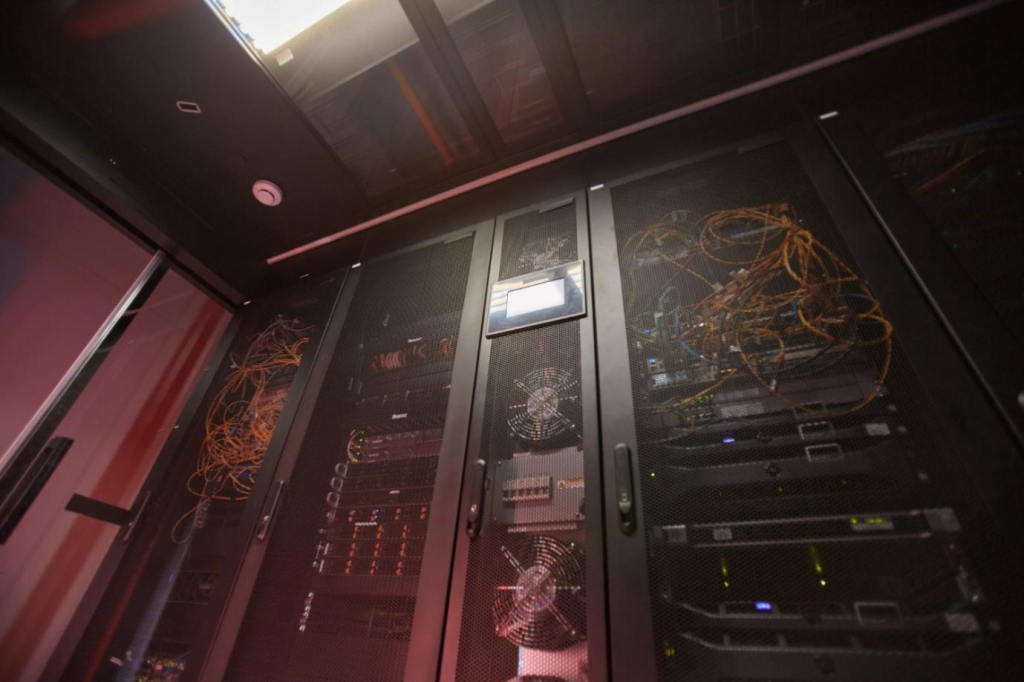
Irreplaceable asset applications refer to buildings or facilities that house valuable or sensitive equipment or other assets that cannot be easily replaced or restored if damaged by fire.
Critical assets in data centres, museums, telecommunications facilities, and historical sites require maximum security and preservation.
For these irreplaceable assets, gaseous agents, whether inert or FM-200, offer the best safeguarding. The protection they provide is not only effective, but also helps to preserve your valuable assets.
Choosing The Right Fire Suppression System for Other Rooms
If you are a business owner with no data centre or server room, you may be unsure of which fire suppression system is most suitable for your commercial building. Fortunately, there are two applications that could align with your company’s nature of business. Let’s explore these options to determine which one is best for your unique requirements.
Commercial Applications: Keeping People and Businesses Safe
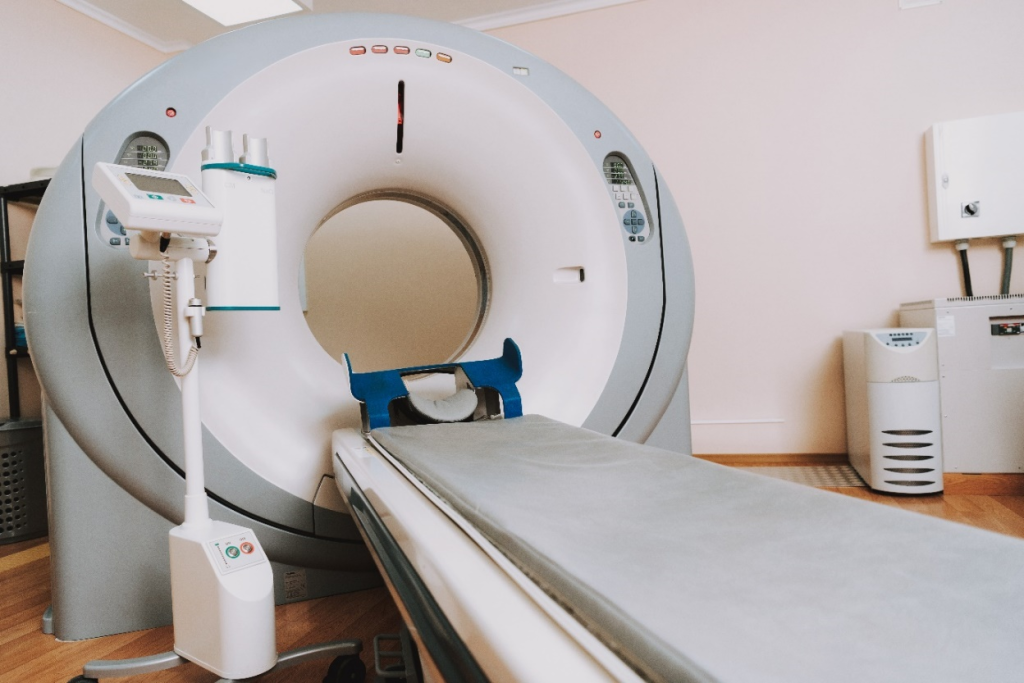
Commercial spaces, such as hospitals and schools, are integral to any community, and each space has its own set of fire suppression needs.
For example, healthcare facilities often employ water mist systems in order to protect their rooms, backup power sources, and common areas.
Meanwhile, their server rooms and spaces containing electronic medical equipment are fitted with systems using chemical agents.
Industrial Applications: Machine and Process Protection
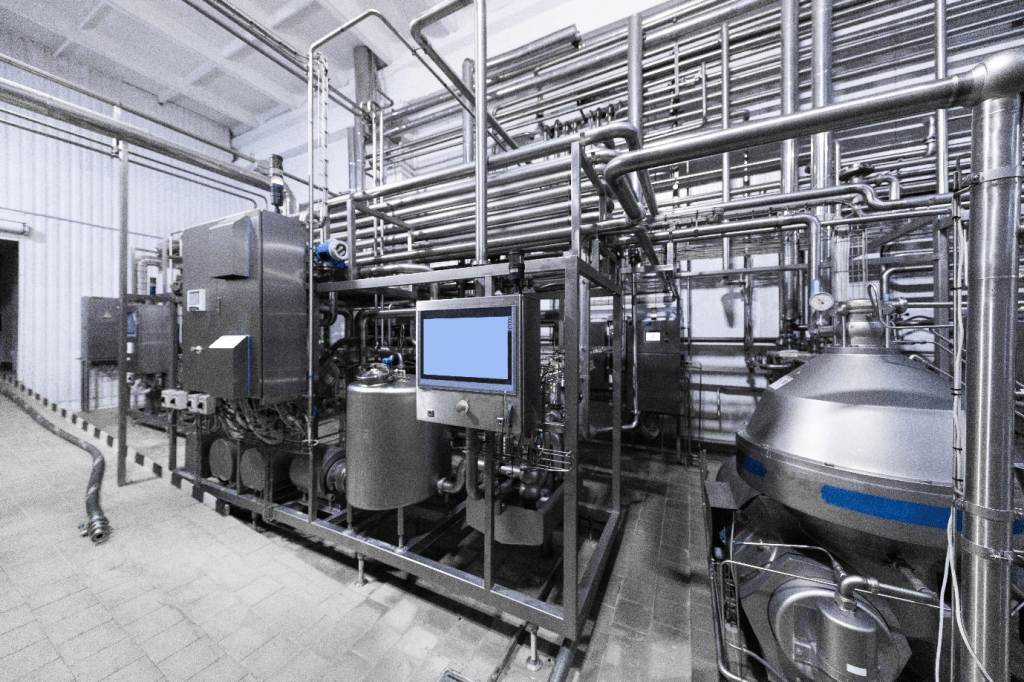
Factories and machine shops often employ water mist and CO2 systems as a favoured cost-effective solution to protect their processes and machinery.
Water mist systems are employed due to their effectiveness against Class B (liquid-based) fire hazards, which are more common in these spaces.
To supplement that, CO2 is recommended for localised applications on specific machines or assembly line segments.
In conclusion, it takes careful consideration to choose the right fire suppression system for your unique space, as different locations will be subject to their specific fire suppression requirements.
As such, it is important to have a proper fire suppression system, such as a clean agent system, in place to protect your people and premises.
Read More: The Importance of An Effective Fire System Maintenance
Palcon: Malaysia’s Reliable Fire Suppression System Provider
A trusted contractor and consultant in the local fire safety and protection industry, Palcon offers a variety of fire suppression systems to cater to the needs of our clients from various industries.
Interested in equipping your building with the necessary fire prevention and safety measures? Contact us to learn more about our fire protection systems.

